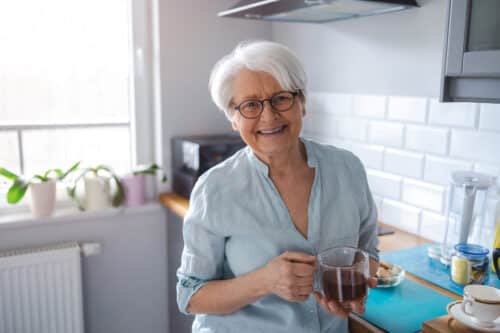Aging in Place; What’s Ageism got to do with it?

All my life, I faced sexism and racism and then, when I hit 40, ageism.
~ Rita Moreno
Aging in Place
The topic of ageism has been on my front burner as of late. My professional focus has for some 35 years been on aging in general and aging in place specifically; from which I’ve always taken a systems approach. These topics occur in context, that is, they exist in an ecosphere of culture and meaning making—a system.
For example, aging in place is generally thought of in a physical/built environment sense, ramps, rails, non-barrier entrances, single level living, etc., then there are also the caregiving aspects (formal and informal), technological applications, environmental considerations, and financial. However, I would argue there is more to consider beyond the physical.
Aging in Place Begins in the Mind
Any architect worth their salt will tell you buildings (the physical) begin first in the mind (the nonphysical) as an idea. To my thinking the same applies to successful aging in place, the idea begins in the mind as well. Either the mind of the inhabitants eventually, or the network of loved ones who have the idea of them remaining home as they age (whether conceived of as “aging in place” or not). And it is at this nonphysical level of the mind that the pernicious nature of ageism does its damage.
Margaret Morganroth Gullette advanced the notion that we are aged by culture, and the ironic paradox of a population that is living longer (average life spans have actually decreased) and yet the fear of aging (gerontophobia) is even more widespread and happening at earlier ages in the United States. Our youth obsessed culture sends ageist messages daily. Data drawn from the University of Michigan National Poll on Healthy Aging, with a representative sample of 2,035 U.S. adults ages 50 to 80 found 93% of older adults say they regularly experience at least one form of ageism (10 were cited).
The importance of this concept of being aged by culture is eloquently researched by Yale professor and leading expert on the psychology of successful aging, Dr. Becca Levy. Her book, Breaking the Age Code: How Your Beliefs About Aging Determine How Long and Well You Live (2022), provides tangible evidence of ageism’s toll on older adults.
For better or for worse, those mental images that are the product of our cultural diets, whether it’s the shows we watch, the things we read, or the jokes we laugh at, become scripts we end up acting out.
~ Becca Levy, Professor of social and behavioral sciences at Yale School of Public Health and of psychology at Yale University
Leavy has found by her research that our biography becomes our biology—in other words how we live determines how we age. And cultural messaging about getting older plays a fundamental role in our physical aging. She showed that health problems thought to be age-related such as memory loss, hearing decline, and cardiovascular events, are also influenced by negative age beliefs. Further, beliefs that are positive about aging can affect health outcomes in favor of extending health and life—7.5 (average) years in fact!
The Role of Self-Efficacy
Self-efficacy is a gerontological term used to describe a mental state in which the older individual is empowered to function effectively in the world.
Self-efficacy is defined as an individual’s belief in their capacity to execute behaviors necessary to produce specific performance attainments.
~ Lee A. Lindquist MD, MPH, MBA, et al., 2022
What we know from the work of researchers like Margaret Morganroth Gullette and Becca Levy, how we internalize aging effects our experience of growing older—positive or negatively.
Ageism Will Erode Self-Efficacy it’s an Inside Job
Successful aging in place requires a healthy belief in one’s capacity to do what is necessary to live in the place of your choosing. This includes maintaining functional health, accepting inter-dependence, a growth mindset (seeking out new knowledge), resources/finances, embracing technology, and finally meaning making of some kind.
Ageism is a Self-Efficacy killer; it eats at the self-esteem of older adults and creates unnecessary learned helplessness and early institutionalization. This is why I have taken a systems approach to aging in place, emphasizing the role of ageism as the antithetical to remaining home by choice–it begins first in the mind. The cultural messaging is daunting, but the good news is there is a growing body of research and boots on the ground pushing back on the decline narrative.
I’m in good company in this endeavor, the ranks are growing, and I encourage you to join the Pro-aging campaign for a richer experience of living and aging in place.
________________________________________________________________________________________________
Department of Senior Affairs Inaugural Age-Friendly Summit | Janine Vanderburg
Aged by Culture The Book
